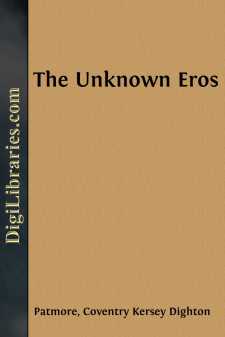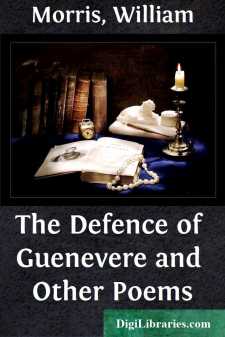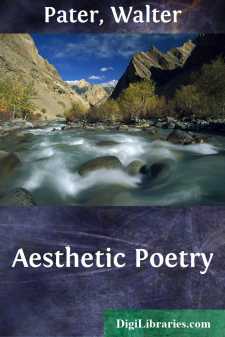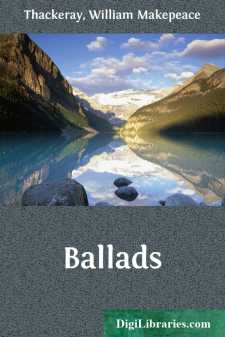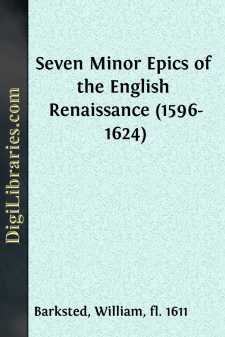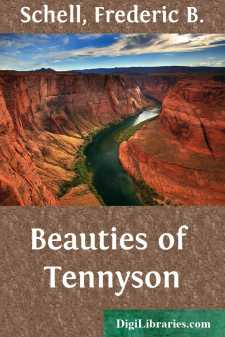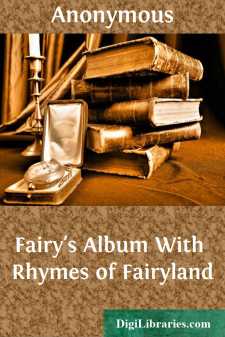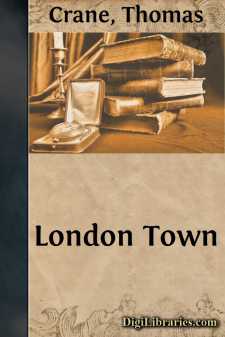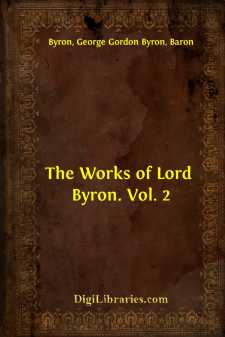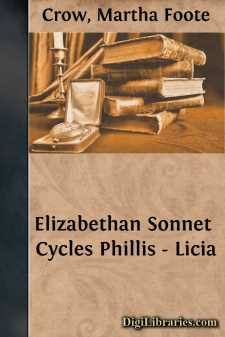Poetry
- American 96
- Ancient, Classical & Medieval 41
- Asian 15
- Australian & Oceanian 11
- Canadian 11
- Caribbean & Latin American 5
- Children's Poetry & Nursery rhymes 51
- Continental European 11
- English, Irish, Scottish, Welsh
- General 483
- Inspirational & Religious 7
- Middle Eastern 3
English, Irish, Scottish, Welsh Books
Sort by:
PROEM. ‘Many speak wisely, some inerrably:Witness the beast who talk’d that should have bray’d,And Caiaphas that saidExpedient ’twas for all that One should die;But what availsWhen Love’s right accent from their wisdom fails,And the Truth-criers know not what they cry!Say, wherefore thou,As under bondage of some bitter vow,Warblest no word,When all the rest are shouting to be heard?Why...
more...
by:
William Morris
THE DEFENCE OF GUENEVEREBUT, knowing now that they would have her speak,She threw her wet hair backward from her brow,Her hand close to her mouth touching her cheek,As though she had had there a shameful blow,And feeling it shameful to feel ought but shameAll through her heart, yet felt her cheek burned so,She must a little touch it; like one lameShe walked away from Gauwaine, with her headStill lifted...
more...
by:
Walter Pater
[213] THE "aesthetic" poetry is neither a mere reproduction of Greek or medieval poetry, nor only an idealisation of modern life and sentiment. The atmosphere on which its effect depends belongs to no simple form of poetry, no actual form of life. Greek poetry, medieval or modern poetry, projects, above the realities of its time, a world in which the forms of things are transfigured. Of that...
more...
THE CHRONICLE OF THE DRUM. PART I. At Paris, hard by the Maine barriers,Whoever will choose to repair,Midst a dozen of wooden-legged warriorsMay haply fall in with old Pierre.On the sunshiny bench of a tavernHe sits and he prates of old wars,And moistens his pipe of tobaccoWith a drink that is named after Mars. The beer makes his tongue run the quicker,And as long as his tap never fails,Thus over his...
more...
by:
William Barksted
INTRODUCTION Professor Elizabeth Story Donno, in her recent (New York, 1963), has made an important contribution to both scholarship and teaching. Not only has she brought together for the first time in one volume most of the extant Elizabethan minor epics, but in so doing, she has hastened the recognition that the minor epic, or "epyllion" as it has often been called in modern times,[] is a...
more...
THE BROOK.I come from haunts of coot and hern,I make sudden sallyAnd sparkle out among the fern,To bicker down a valley.By thirty hills I hurry down,Or slip between the ridges,By twenty thorps, a little town,And half a hundred bridges.I chatter over stony ways,In little sharps and trebles,I bubble into eddying bays,I babble on the pebbles.With many a curve my banks I fretBy many a field and fallow,And...
more...
by:
Anonymous
This is Fairy's Album.This is Fairy, bright as Spring,Loving every living thingWith a love so sweet and true,That all creatures love her too!This is Fairy, bright as Spring,In Fairy's Album. This is Fairy, wondrous wise,Sunshine laughing in her eyes,Who will prattle on for hoursTo the brooks and trees and flowers,To the birds and butterflies,To all creatures 'neath the...
more...
by:
Thomas Crane
One foot up and one foot downAnd that's the way to— [02] [03]C,B,W,WITL, ,WFI:C,—SP',,U, O'. [04] [05] [06] [07]CONTENTSPageTHE TOWER OF LONDON, , ,THE OMNIBUSTHE PENNY-ICE MANCOVENT GARDEN,THE PENNY-TOY MANTHE ORANGE GIRLTHE FIRST OF MAYST. JAMES' PARK,WESTMINSTER ABBEY, ,CHARITY GIRLSTHE BRITISH MUSEUM, ,THE UNDERGROUND RAILWAY,THE ZOOLOGICAL GARDENS, ,THE MILK WOMANTHE MUFFIN...
more...
INTRODUCTION TOTHE FIRST AND SECOND CANTOS OF CHILDE HAROLD. The First Canto of Childe Harold was begun at Janina, in Albania, October 31, 1809, and the Second Canto was finished at Smyrna, March 28, 1810. The dates were duly recorded on the MS.; but in none of the letters which Byron wrote to his mother and his friends from the East does he mention or allude to the composition or existence of such a...
more...
INTRODUCTION The last decade of the sixteenth century was marked by an outburst of sonneteering. To devotees of the sonnet, who find in that poetic form the moat perfect vehicle that has ever been devised for the expression of a single importunate emotion, it will not seem strange that at the threshold of a literary period whose characteristic note is the most intense personality, the instinct of poets...
more...


